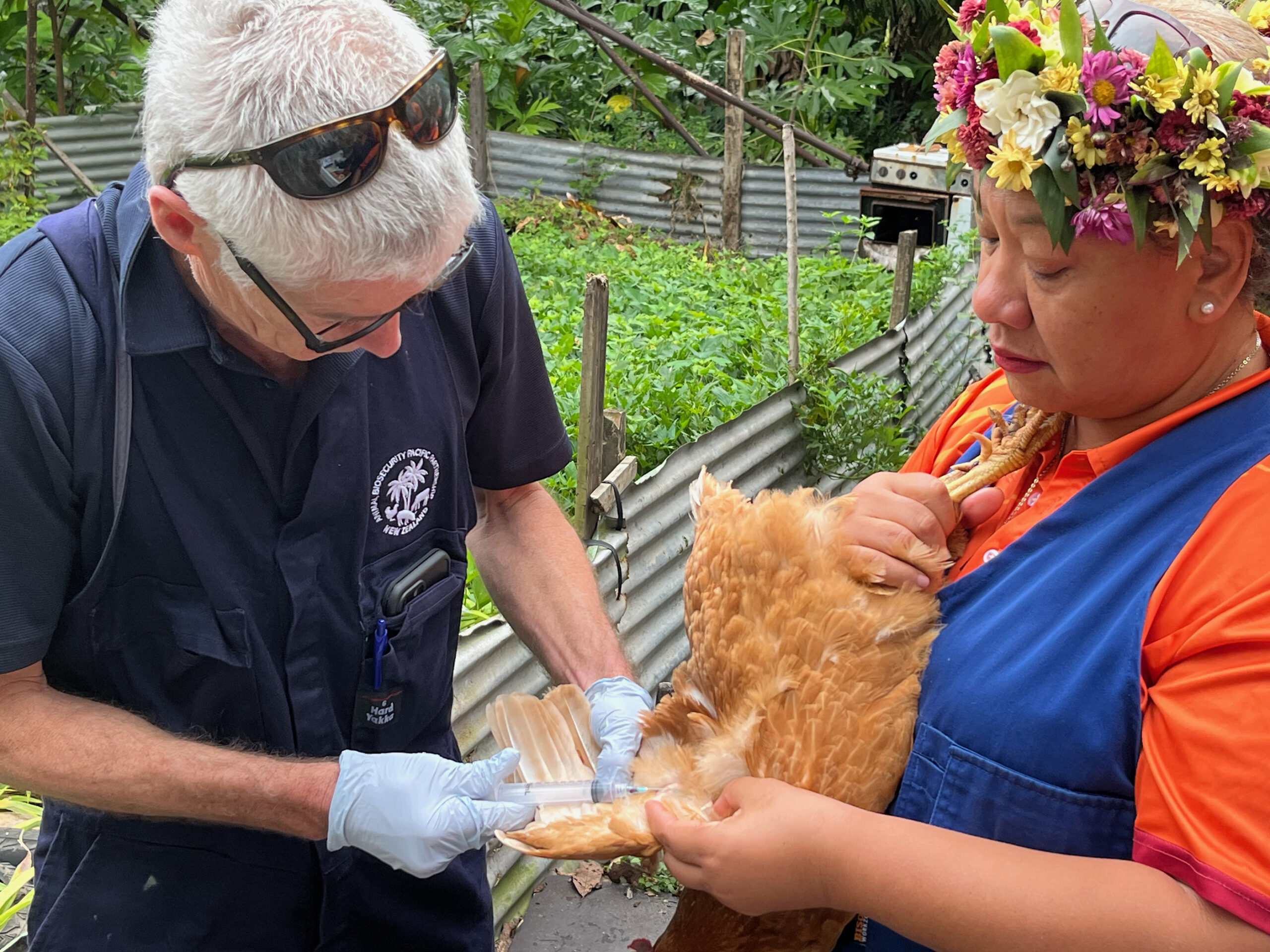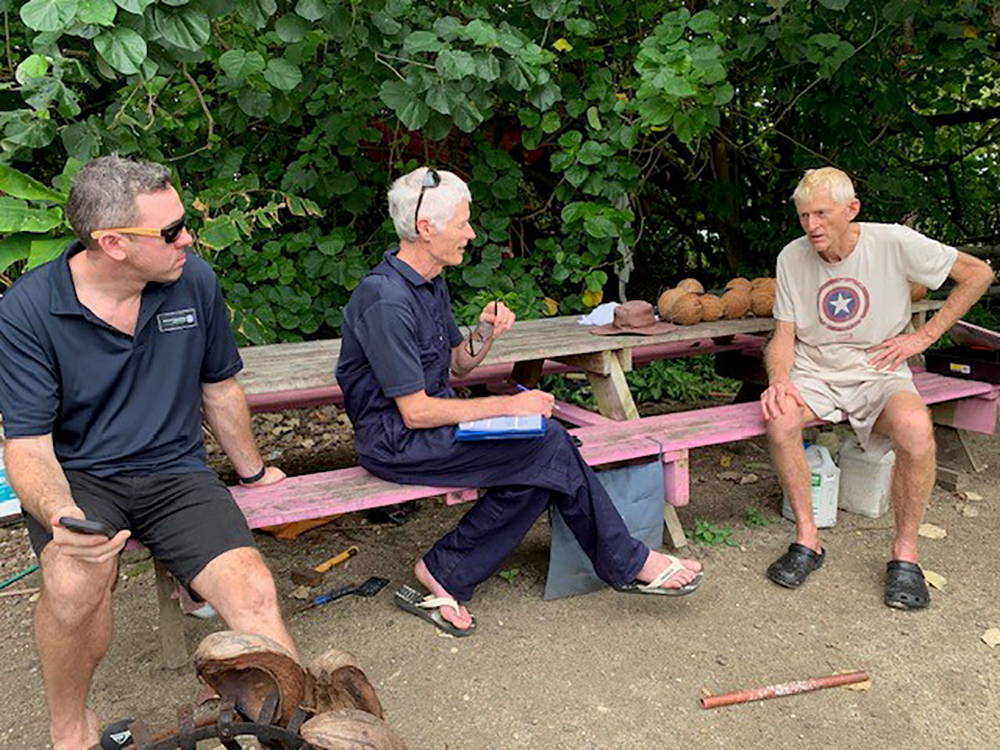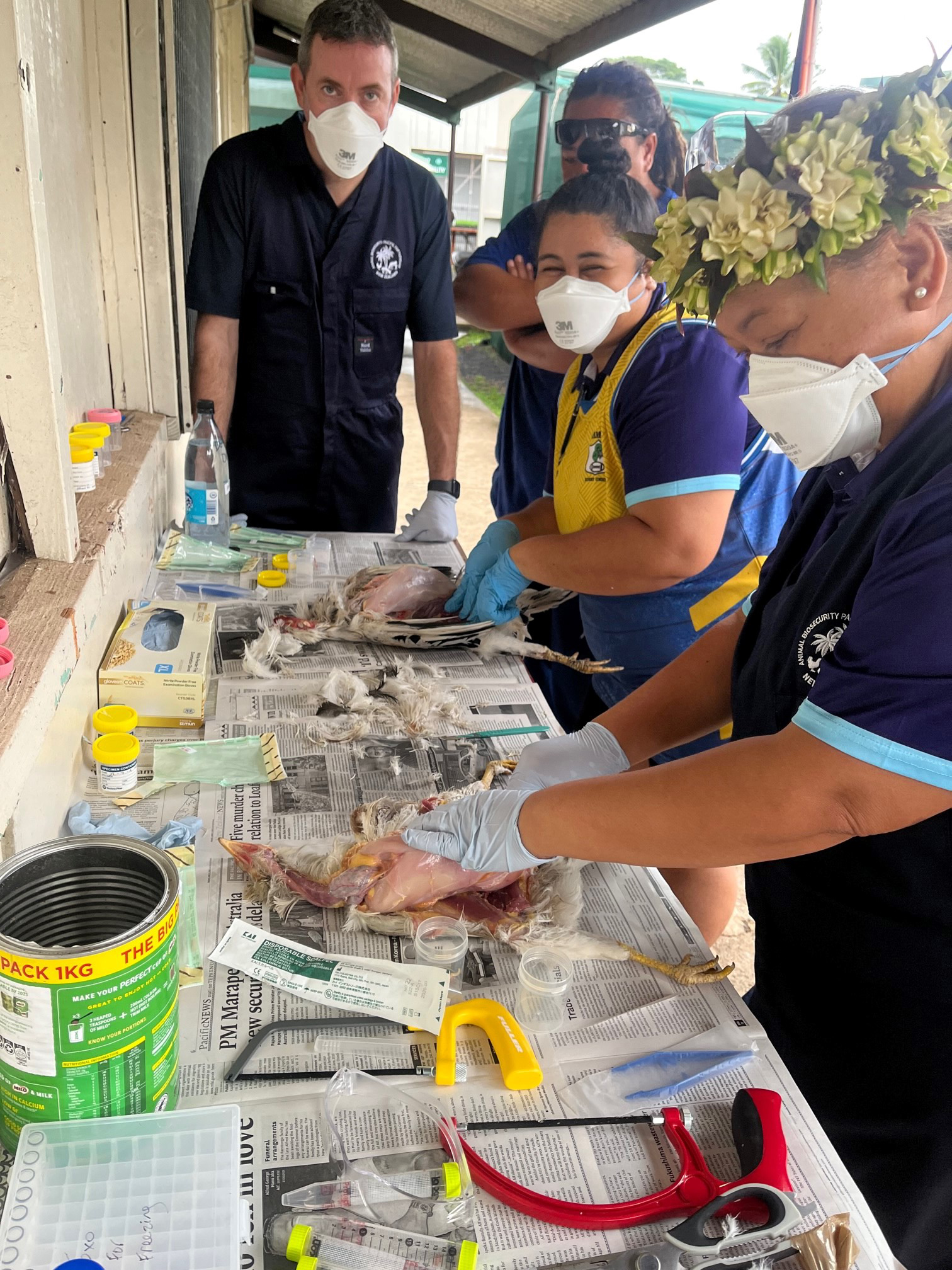Infectious disease ruled out in chicken deaths investigation
Monday 19 June 2023 | Written by Losirene Lacanivalu | Published in Environment, Health, National

New Zealand MPI’s Dr Andrew McFadden inspects a bird (chicken). SUPPLIED / 23061621 / 23061625
New Zealand’s Ministry of Primary Industries (MPI) animal health experts have ruled out infectious disease as the cause of death for the Rarotonga chickens.
Dr Andrew McFadden and Dr Oliver Quinn have been working closely with the Cook Islands Ministry of Agriculture and the six households that witnessed the deaths of the chickens to determine the cause of death.
Dr McFadden said the most likely cause of the event was a toxin or poison.
Rarotonga residents last month raised alarm after witnessing chickens “dropping dead” with one reporting 25 dead chickens that fell from a tree next to their house.
Ministry of Agriculture head Temarama Anguna-Kamana acknowledged the MPI team and said she was glad that infectious disease has been ruled out.

Dr Andrew McFadden of New Zealand MPI with Ministry for Agriculture head Temarama Anguna-Kamana and Cecilia Samuela-TouAriki, the director for advisory services and NZ MPI’s and Dr Oliver Quinn. LOSIRENE LACANIVALU / 23061627
Anguna-Kamana said the Ministry would continue to maintain contact with NZ MPI through Cecilia Samuela-TouAriki, the director for advisory services, for the cause of death.
Dr Quinn said they would be taking 99 samples of blood and tissue from the chickens they post-mortem in Rarotonga for further testing by a pathologist to rule out high risk diseases and conduct a toxicology test to determine if the birds ingested any toxin.
Read more: Chickens ‘dropping dead’ raises concern
Dr McFadden said: “What we have gathered from talking with all of these households is that there is likely to be a single point of exposure which is different from what we would expect from an infectious disease.”
He said there have been no increasing cases overtime.

NZ MPI’s Dr Andrew McFadden and Dr Oliver Quinn with Tupapa resident Rod Browne. SUPPLIED / 23061623
Dr McFadden explained that the process by which they determined the actual cause of death involved mostly talking to the household who witnessed the matter and trying to understand what happened.
“As well as that, we are undertaking some diagnostics looking at the affected areas and places where the event occurred and looking at some unaffected places – comparing results.
“But we don’t really expect to see anything, because from what we have observed is that the most likely cause of this event is a toxin or a poison – or something that has caused these birds to be affected very quickly rather than infectious disease.

New Zealand’s MPI team with the Ministry of Agriculture conducting some investigations. SUPPLIED / 23061622 / 23061624
“So we can categorically rule out some of the big causes of bird mortality, those are avian influenza, Newcastle disease … or infectious diseases have been excluded.”
Dr McFadden said that they would also conduct some diagnostics for a number of other different agents, which would take a number of weeks and months.
“But we have managed most of the objectives that we set out to do to understand the impact and determine the cause. We got a good hypothesis about it.”
They advised the public to report any such cases to the Ministry of Agriculture.












































